Juan Domingo Farnos En la convergencia de la educación disruptiva y la inteligencia artificial, emergen sistemas inteligentes que implementan el concepto de NeuroAprendizaje Adaptativo, combinando análisis masivo de datos y deep learning para predecir y mitigar desconexiones cognitivas en tiempo real. Mediante el desarrollo de Modelos Cognitivos Dinámicos basados en datos emocionales y de interacción,…
Get Started for FREE
Sign up with Facebook Sign up with X
I don't have a Facebook or a X account


 Your new post is loading... Your new post is loading...
 Your new post is loading... Your new post is loading...
In the light of AI, eLearning outsourcing vendors must offer rapid development, AI integration, scalability, and more. Fin Via CommLab India
Juan Domingo Farnós La teoría de aproximación ha emergido como una piedra angular en la ingeniería y la inteligencia artificial (IA), proporcionando un marco robusto para abordar problemas complejos mediante funciones matemáticas simplificadas. Su capacidad para aproximar funciones no solo ha sido fundamental en la resolución de problemas en diversos campos, sino que también está…
Juan Domingo Farnós Esta investigación plantea una arquitectura prospectiva que transita desde la Inteligencia Artificial Generativa (IAGen) hacia la Inteligencia Artificial General (AGI), enmarcada en contextos educativos disruptivos, plurales y ubicuos. Propone escenarios híbridos donde docentes y algoritmos co-crean rutas de aprendizaje adaptativo, emocional y metacognitivo, anclados en ecosistemas digitales sensibles a la diversidad cognitiva…
Juan Domingo Farnos En el umbral de una transfiguración epistémica radical, el pensamiento computacional trasciende su genealogía técnica para reconfigurarse como una arquitectura gnoseológica transdisciplinar. Este constructo se erige como un metadispositivo cognitivo polifásico, donde la abstracción algorítmica coexiste con la heurística creativa en un bucle recursivo de síntesis y proyección. El problema deja de…
Por Lorenzo García Aretio RESUMEN PODCAST-AUDIO Todas las entradas de la serie “80 años. Compendio EaD”, VER AQUÍ Las instituciones, los do... Via LGA
A new survey from the AAUP shows that a breakdown of shared governance around implementing AI has implications for the future of teaching, learning and job security. More colleges and universities are adopting artificial intelligence tools, yet faculty are rarely part of their institution’s decision-making process, according to a survey on AI and academic professions the Am Via Vladimir Kukharenko 
Marco Bertolini's curator insight,
July 22, 8:09 AM
Decisions about AI at the University don't come frome faculty. But, what power of decisions do they have on their own tools in general?
Abrir un foro es relativamente sencillo, sin embargo, convertirlo en un espacio de aprendizaje profundo exige una moderación especializada y sensible. Investigaciones sobre enseñanza en línea (Shea et al., 2006; Bolkan et al., 2012) concluyen que la calidad de la presencia docente y la forma de conducir el diálogo influyen más en los resultados que […] Via LGA
En un contexto donde la formación en gestión de proyectos se vuelve indispensable, quienes lideran iniciativas educativas necesitan integrar nuevas
Via Yashy Tohsaku
From
et-mag
By Phillip Alcock Via Yashy Tohsaku
Juan Domingo Farnos La educación del futuro está siendo definida por un conjunto de paradigmas científicos y tecnológicos que abarcan desde la ingeniería avanzada hasta la teoría cognitiva, pasando por la automatización inteligente y los enfoques inclusivos. En este contexto, el concepto del “Aula del Futuro” representa una reinvención importante de la educación superior, impulsada… |
Merece la pena repensar la relación entre activismo y deliberación no como polos opuestos, sino como formas diferentes y complementarias. Via LGA
Chatbots can be used at scale to mimic the Socratic method in university assessment and guide students to reflect on their thinking and reasoning process
Via Yashy Tohsaku
Georgieva, Maya y John Stuart. 2025. “ Ethics Is the Edge: The Future of AI in Higher Education ”. EDUCAUSE Review , 24 de junio de 2025. Consultado el 28 de julio de 2025.https://er.educause.edu/articles/2025/6/ethics-is-the-edge-the-future-of-ai-in-higher-education El informe aborda el papel transformador... Via LGA
Many institutions must navigate limited resources, uncertainty around tools and questions of capacity if they are to embrace generative AI. This guide outlines six practical, scalable steps that build on expertise and institutional strengths Via Vladimir Kukharenko
Let’s dive into what priming is, how it enhances AI responses, and how L&D professionals can leverage priming to generate accurate and meaningful content. Via CommLab India
Rather than pretending students can – or even should – avoid GenAI to become critical readers, we need to develop their critical reading skills to be able to successfully and critically interrogate AI-produced materials. Here’s how Via Vladimir Kukharenko, Ricard Lloria 
Vladimir Kukharenko's curator insight,
July 22, 3:27 AM
Як читати тексти, згенеровані ШІ вправа для розробників ДК та тьюторів
This article explores the transformative integration of Artificial Intelligence (AI) into educational systems, moving beyond superficial applications to examine profound shifts in pedagogy, assessment, and the teacher's role. Drawing on a Via Vladimir Kukharenko
Discover how AI can make general education more relevant for working learners through personalized, job-based assignments and meaningful mentorship. Via Vladimir Kukharenko
Juan Domingo Farnós El futuro de la educación superior está en plena transformación, y en este cambio radical, los agentes inteligentes y el enrutamiento dinámico de consultas juegan un papel decisivo al ofrecer un enfoque disruptivo, más allá de los modelos tradicionales de enseñanza y aprendizaje. Los sistemas educativos, al integrar tecnologías avanzadas como la…
The advent of ChatGPT, and the subsequent rapid improvement in the performance of what has become known as Generative AI, has led to many pundits declaring that AI will revolutionize education, as well as work, in the future. In this paper, we argue that enthusiasm for the use of AI in tertiary education is misplaced. A proper understanding of the nature of the outputs of AI suggests that it would be profoundly misguided to replace human teachers with AI, while the history of automation in other settings suggests that it is naïve to think that AI can be developed to assist human teachers without replacing them. The dream that AI could teach students effectively neglects the importance of ‘learning how’ in order to ‘learn that’, that teachers are also role models, and the social nature of education. To the extent that students need to learn how to use AI, they should do so in specialized study skills units. Rather than creating a market for dodgy educational AI by lowering their ambitions about what they can offer, universities should invest in smaller class sizes and teachers who are passionate about their disciplines. To flourish in the future, just as much as they do today, societies will need people who have learned to think and not—or not just—intelligent machines. Via Edumorfosis
Discover how integrating artificial intelligence and critical thinking strategies can foster transformative learning experiences in higher education. Learn how educators can model, guide, and support students in navigating AI with intention, reflection, and integrity. Via Vladimir Kukharenko 
Mª de Lourdes Ferrando Rodríguez's curator insight,
July 25, 12:52 PM
Inteligencia artificial y estrategias de pensamiento crítico
This collection explores how social media can be used to develop skills, shape pedagogy and foster online learning communities, as well as support academics in building their professional profiles and extending the reach of their research Via Vladimir Kukharenko |


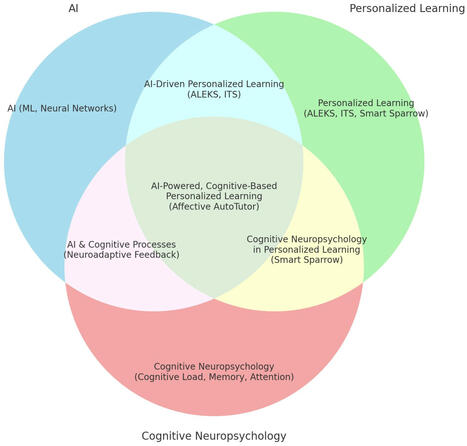


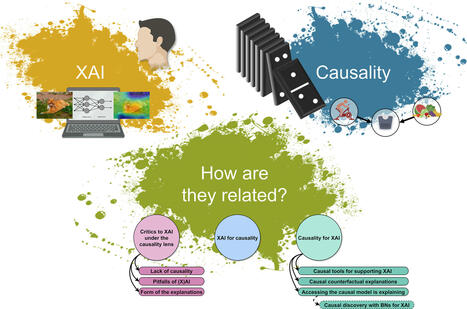
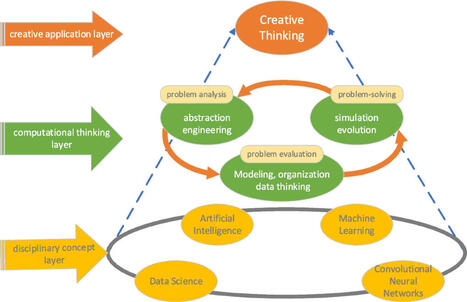
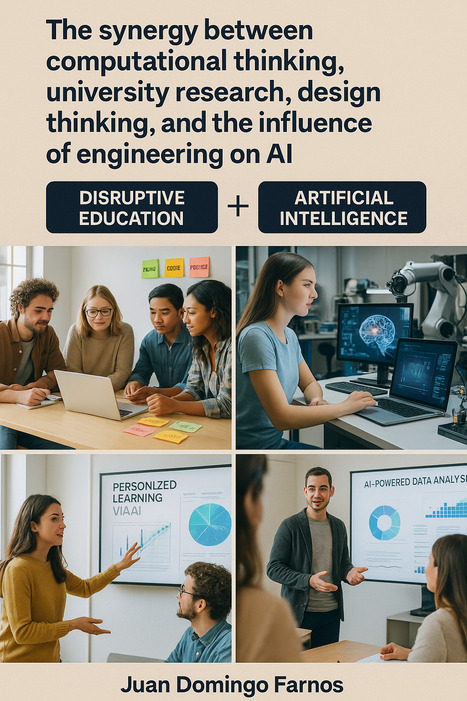
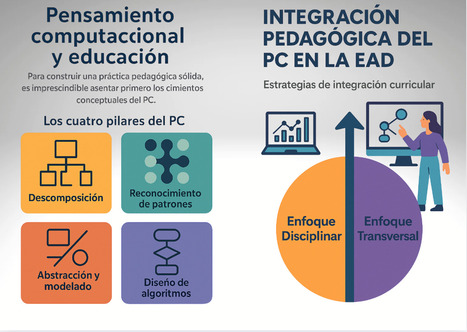
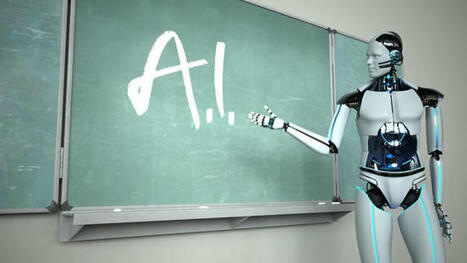
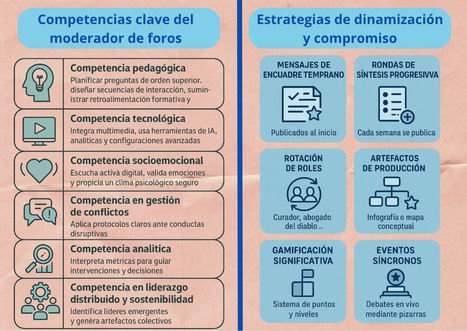
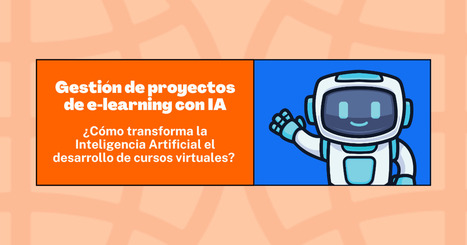
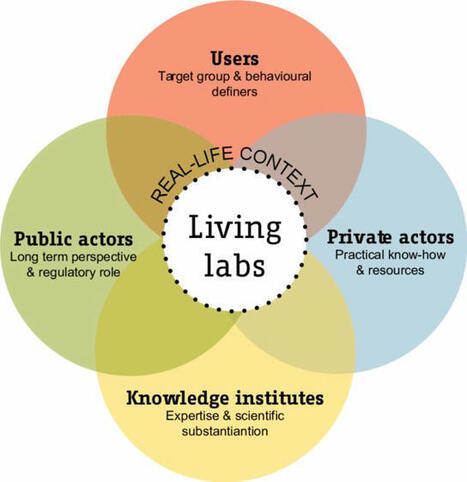
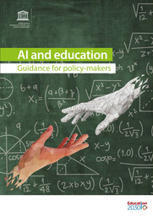



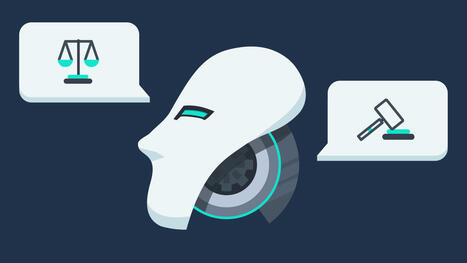




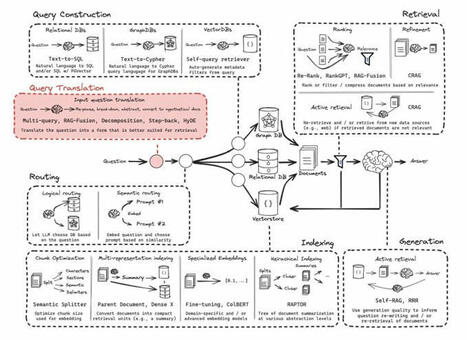
![[PDF] Bullshit Universities: The future of Automated Education | E-Learning-Inclusivo (Mashup) | Scoop.it](https://img.scoop.it/TZrJjjpkobBxhKEOwJNn6Dl72eJkfbmt4t8yenImKBVvK0kTmF0xjctABnaLJIm9)






